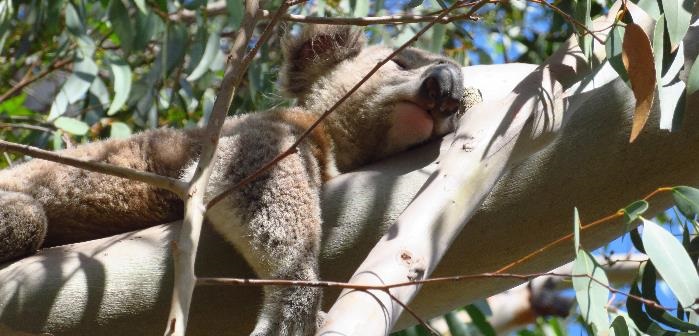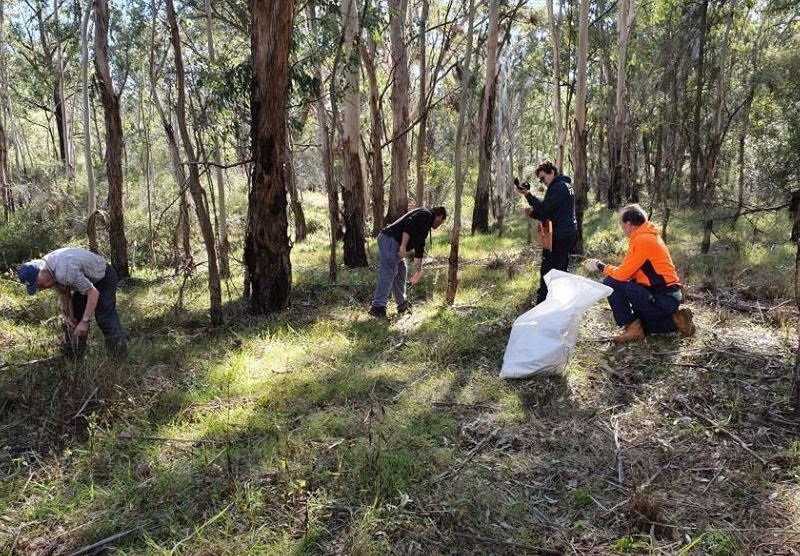Threats to our koalas

Our koalas need your help
There are many threats to koalas in our local area and across Australia. Some are influenced by humans and others can occur naturally in our environment. Many of these threats are complex and require input, planning and assistance from multiple stakeholders such as scientists and expert consultants. Some just require minor changes from our community.
Natural threats
Bushfire
Koalas readily survive many fires, particularly when the fire is a low level ground fire. However, when a major fire burns through the tree canopy and moves quickly, most koalas have little chance of survival. Over the 2019/20 bushfire season it is estimated that 10,000 koalas – a third of New South Wales’ populations are estimated to have died as a result of bushfire a drought, luckily fires did not impact the Campbelltown area.
Disease
Koala colonies are prone to naturally occurring diseases such as chlamydia, which can cause conjunctivitis, pneumonia, urinary tract infections and reproductive tract infections. Luckily, koalas in Campbelltown are generally healthy, disease free animals.
Predators
There are several natural predators of the koala. Young koalas are most at risk of predation by large owls and pythons. We once received a photo of a koala joey being held by a powerful owl in Smiths Creek, Ruse.
Human influenced threats
Habitat loss and fragmentation
Habitat loss is one of the main threats to koalas and can occur through land clearing for urban development, broad scale clearing in rural areas, the removal of habitat trees and the reduction in the size of habitat patches. Koalas in the Campbelltown area are heavily dependent upon the vegetation within the Georges River corridor throughout Macquarie Fields, Long Point, Minto Heights, Kentlyn, Ruse, Airds, St Helens Park and Wedderburn.
Vehicle strike
Motor vehicles are a major cause of koala deaths across Campbelltown and broadly across Australia. In Campbelltown, more than 30 koalas have been killed on Appin Rd since 2011 and many more have been killed on local roads throughout our peri-urban bushland interface.
Dog attacks
There are currently more than 33,795 registered dogs within Campbelltown, with many more unregistered. Irresponsible dog ownership can result in attacks on koalas and other native animals that occupy nearby bushland. Dogs weighing over 10kg contribute to over 95 per cent of fatal dog attacks on koalas.
To find out more download our Living with dogs in koala habitat brochure(PDF, 2MB)
Swimming pools
Koalas are reasonably strong swimmers, but once in a pool they rarely survive without assistance as they run out of energy trying to escape and in turn, often drown.
Weeds
The spread of weeds can have a significant impact on the quality of koala habitat. Weeds cannot only prevent the growth of koala food trees, but can also increase the risk of bush fires when they establish as a dense understorey.
